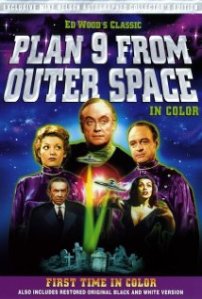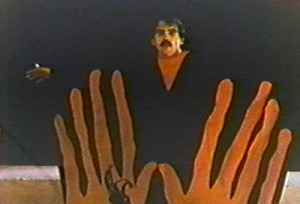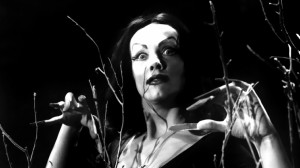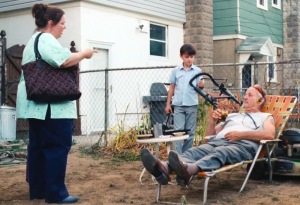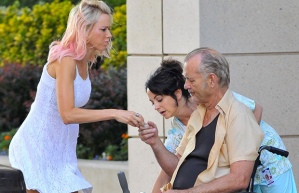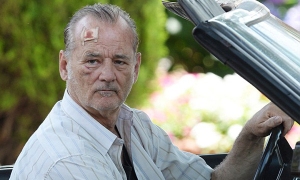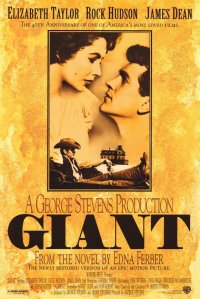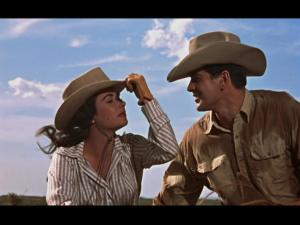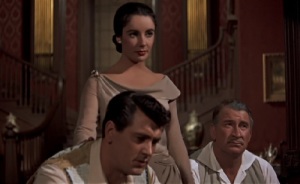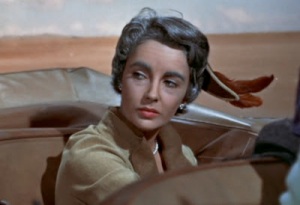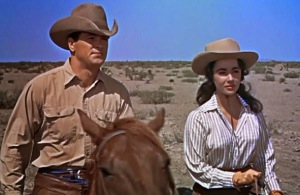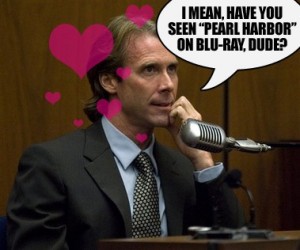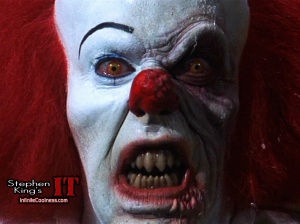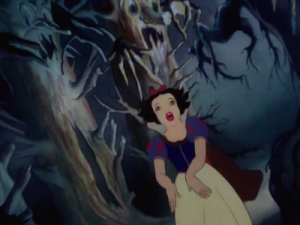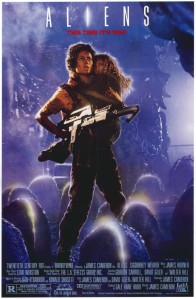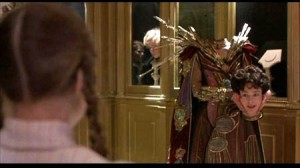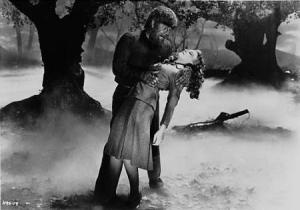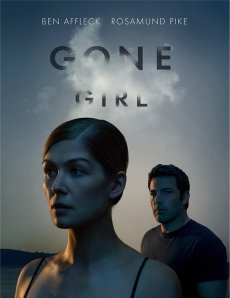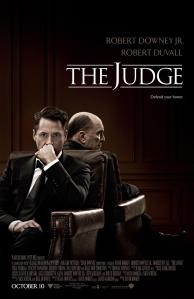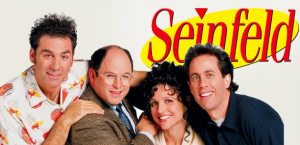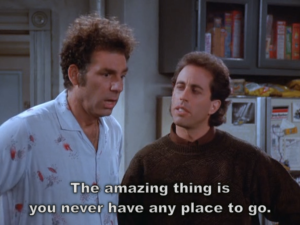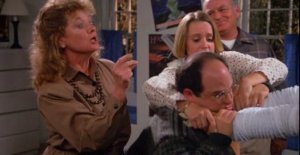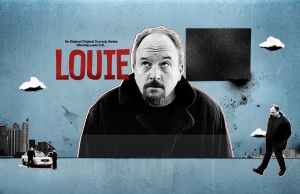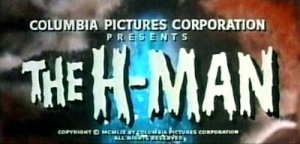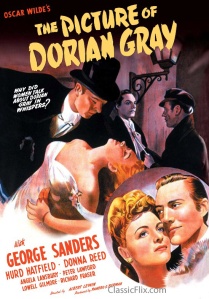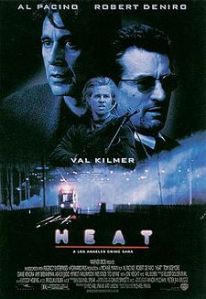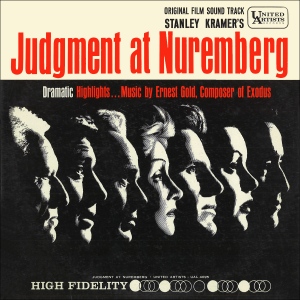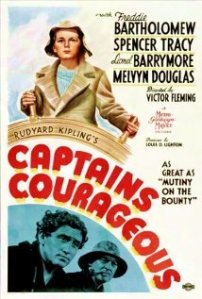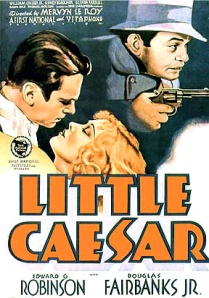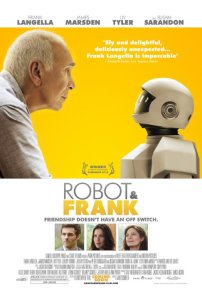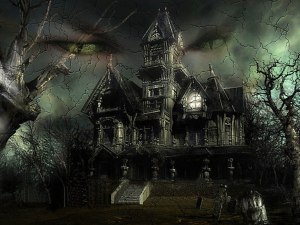
Halloween. Ghouls, goblins, monsters and freaks.
Aside from Christmas, the last few weeks of October are my favorite time of the year. The smell of leaves is thick in the air and it is almost haunting at times. You look outside at the moon, hiding behind a thin layer of clouds, as if it has something to be scared of. Terror and scares are hiding in every little corner this time of year, waiting for the opportune moment to pounce on you like a crazed lion stalking its prey.
And I love it.
As much as we don't like to admit it, people like to be scared. It's why we go out in the dark of night on a cool October evening. Why we enjoy seeing the look of surprise on others' faces when you successfully scare them. And why we watch copious amounts of horror movies this time of year. There's just something so tempting about being terrified that we seem to seek it at times.
Speaking of those horror movies, in honor of the season, I should offer you some advice on what movies to watch over the next couple weeks. In particular, my favorite type of horror films, the monster genre.
There is something enticing, yet at the same time, disgusting, about monster movies. When we think of the term "monster," we think of a creature that doesn't belong in our world. An abomination that goes against everything we stand for and must be exterminated. But many monster movies leave the door ajar and paint a picture of the true monster being humans. In some cases, we created the monsters, and in others we are attacking and destroying someone else simply because they're different from us.
In any case, monster movies are exciting, thought-provoking, adventurous, suspenseful and are great to watch this time of year. So let's look at what I consider the ten greatest monster movies of all time. These are in no particular order, as I don't think I could bring myself to say what is the best monster movie ever. Instead, I'll try to have films of varying genres to give you a wide range to choose from.
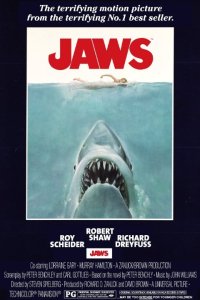
"Jaws" (1975)
I would describe "Jaws" as Steven Spielberg attempting to pull of Alfred Hitchcock, and succeeding.
This is a true work of suspense and tension. For years after this films release, people were terrified of swimming in open waters. Yet we hardly even see the dreaded shark for the majority of the film. For more than three-fourths of the film, the creature remains in the shadow, as we only see the aftermath of his attack, point of view shots of him about to strike and many statistics and notes about the unrelenting strength of the great white shark. All set to that eerie score by John Williams.
Like most good monster movies, it focuses more on the human element and how they're going to stop the monster, rather than overdoing it on the creature and making his presence less significant. We get plenty of scenes between Roy Scheider, Richard Dreyfuss and Robert Shaw, as they struggle among themselves aboard the Orca and stop the beast. One of the best scenes is Quint telling stories about how he got his scars in a humorous gesture, only for the tone to switch as he explains his hatred for sharks and we get a chilling story aboard the U.S.S. Indianapolis during WWII.
All the while, the shark is lurking in the background. Always the possibility of attacking, always unsure if our characters are safe.

"The Thing" (1982)
This is the ultimate tale of paranoia and suspicion, topped of with otherworldly practical effects and haunting score by Ennio Morricone, the composer of "The Good, The Bad and the Ugly."
For those who haven't seen this one, it is a remake of "The Thing From Another World" back in 1951. While the original focused more on being funny and trying to make a poignant statement on scientific research (though the scientist in that film was an idiot), the 1982 John Carpenter remake focuses more on surviving in the arctic while in the presence of a shape-shifting alien, who is slowly taking over the camp.
"If I was an imitation, a perfect imitation, how could you tell the difference," says one of the main characters. The answer is, you can't. You have no idea if you are the last remaining human in a group of imitations until it is too late. That is true horror.
What makes this film work even better is that none of the main characters are stupid. Every action that the characters take are rational, thought-out and logical. They don't go for the guns, because it would just spread out the cells of the alien and create even more of a problem. They burn everything the creature might have touched in case they might be infected. And no one trusts anybody else.
But the scary thing about "The Thing" is that the alien is just as smart as them.
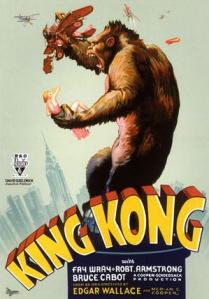
"King Kong" (1933)
If you forced me to say what I considered the greatest monster movie of all time, it would be a toss-up between "King Kong" and another film that I'll get to later.
I feel like I don't need to say much on the subject of the original "King Kong." It is a timeless tale about beauty, monstrosities both big and small, and the movie crew that filmed it. All leading up to one of the greatest climatic battles in cinematic history atop the Empire State Building.
What has stuck with me through the years with "King Kong" is just how impressive the special effects are. The way Kong moves and battles giant T-Rexs' is still stunning to watch today. And keep in mind, this was made nearly 80 years ago, and it is still amazing to watch Skull Island come to life.
One of the classics and one of the best monster movies ever made.
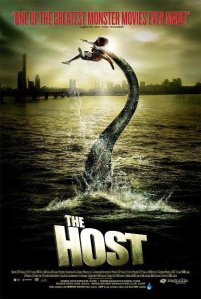
"The Host" (2006)
Monster movies love to promote their social commentary and make messages to the world about a variety of subjects that are hurting our world. Most of the time though, the messages are heavy-handed, overblown and forced down the audiences' throats. But in "The Host" we get an environmental message that is low-key and not forced upon us at all.
In this South Korean masterpiece, the dumping of many toxic chemicals in a nearby river has created a monstrous tadpole-like creature, which is now running amok and abducting people. One of the people taken away is a little girl, and the majority of the film is spent on her family trying to get her back, despite the government attempting to quarantine the area and keep the monster under wraps.
This one is more-or-less about how fear spreads easily, but that it is just one more hurdle that we all must face in our lives. Every character in the film has something to fear in their lives, even before they know about the monster, and don't like themselves as a result. But they're willing to let all that go to save a young innocent girl and make sure she doesn't grow up to be like them.
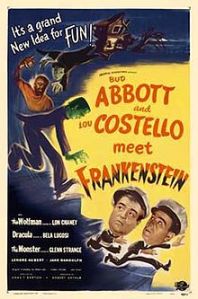
"Abbott & Costello Meet Frankenstein" (1948)
What? You didn't think these would be serious, dramatic films, did you? Nothing like a good old comedic monster movie. Especially when that film features Dracula, Frankenstein, the Wolf Man and a comedic duo at the top of their game.
This one offers just a bit of everything that you would expect it to have. Abbott and Costello's usual verbal back-and-forth, Dracula being sneaky and manipulative, the Wolf Man watching out for the full moon and back to Bud and Lou for some slap-stick with Frankenstein.
It is a blast to watch from start-to-finish. If it's not entertaining you with comedy, then the monsters and the atmosphere do that job just fine. This one is a combination of the best of both worlds.
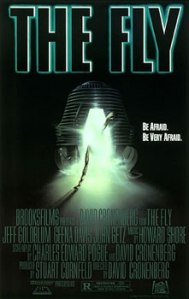
"The Fly" (1986)
This film scares the living crap out of me. It scared me when I was eight and saw this man slowly transform into something unhuman and monstrous, and it still scares me today. I cannot watch the final scenes without wincing in terror. Yet I cannot look away.
Another remake from a 1950s film of the same name, where a scientist creatures a matter transporter and ends up testing it on himself, only to find out later that a fly also got caught in there and his DNA has been mixed with the fly and is slowly turning into a half human-half fly creature.
What sets the 1986 remake apart from the original is David Cronenberg's creative touch. And by creative, I mean disturbing. We watch as Jeff Goldblum slowly loses his humanity, both mentally and physically. It's not so much that he begins to think like a fly, but that he gets so caught up in his own ego and the realization that all his work and progress will be lost forever. Like Goldblum says at one point, "I feel like I've been a fly, dreaming about being a human. And now the dream is over. And the fly has woken up."
"The Fly" is tragic, disturbing, gross and I love it. It's the tale of a man whose ambition and ego got in the way of scientific progress and has now lost his humanity.
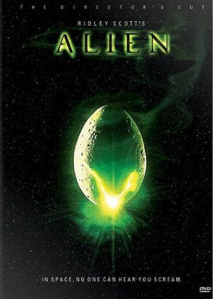
"Alien" (1979)
The perfect phrase to describe "Alien" is haunted house in space. It's why the tagline "In space, no one can hear you scream" is so applicable to this film.
This is one of the few films where I feel a tremendously slow pace is one of the biggest blessings it can have. "Alien" takes it time to show every section of this giant ship and how empty yet symmetrical it is. Long uncut shots of the ship, as we pan across, wondering just who is in charge and if the alien has already struck.
It is easy to see why Ash considers the alien the perfect life form and the ultimate killing machine. It's slick, sharp body, the acid blood, a second set of jaws and can hide just about anyway. Yet we will still never completely understand it, because it is alien. It is the unknown and the unexpected that terrifies us. This makes "Alien" a one-of-a-kind horror film.
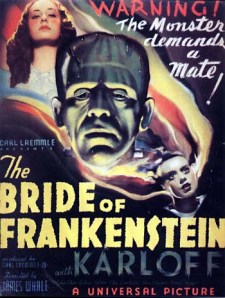
"Bride Of Frankenstein" (1935)
I mentioned that, aside from "King Kong," there was one other film I would consider for the title of greatest monster movie ever. "Bride Of Frankenstein" is that other movie.
Previously, I've discussed monsters from space, the ocean depths and creatures made by toxic chemicals and scientific mishaps. Now we get to discuss the true monster: humans. While there is a monster in "Bride Of Frankenstein" we see that he wants nothing more than to be treated equally and have a chance to live as much as anybody else. He doesn't want to hurt others, but we fear him because he is different.
Yet here is Doctors Frankenstein and Pretorius, the mad scientist that created the monster simply to see if he could and the one who wants to recreate it due to his own ego and arrogance. They resort to kidnapping, acting like gods and choosing who lives and dies and performing experiments that create people tiny enough to be put in glass jars.
So I ask you, in this case, who is the true monster?
By the end Doctor Frankenstein does learn the error of his ways and realizes just what he is doing by creating life by resurrecting the dead, but Pretorius is still set on creating a mate for the monster. That their "collaboration" is greater than any other act performed by man and that he will change the world.
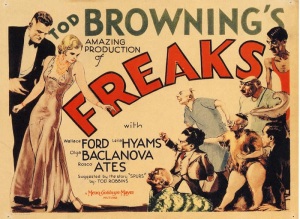
"Freaks" (1932)
Much like "The Fly," this one can be hard to watch, but I can't look away.
Though the concept of the Freak-Show is a bit of a cliché these days, it is only because film poorly captures it, opting to use actors and lots of make-up to make them look like freaks.
What if filmmakers actually used strange-looking people, like a real bearded woman or conjoined twins, or a man who has no arms and legs? Controversial? Certainly. But fascinating? Absolutely.
That is exactly what Tod Browning, director of the 1931 "Dracula" did. He sought out these people, treated them as equals and created a film that is unmatched in that category. Set in a Freak-Show with all the usual attractions, it follows one of the dwarves in the show falling in love with a normal girl who just wants to use him to gain publicity and intends to kill him when she is done with him.
Like "Bride Of Frankenstein" the true monster here is the average human. The so-called "freaks" merely want to be accepted and this show is the one place they can all do that. Most of them are content with living their lives like this, among friends. It isn't until they're treating unfairly by this woman and her boyfriend that they fight back. And boy, do they fight back.
This is the oldest film on this film, and as result, is the most terrifying. To think that this film was released in 1932 and was able to accomplish all that it did is amazing. While it was hated at the time of its release, it now gets the respect and admiration that it truly deserves.
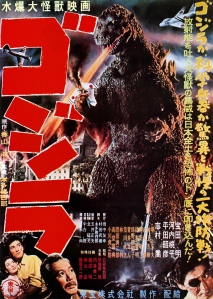
"Godzilla" (1954)
Don't act like you didn't see this coming.
Considering the legacy of Godzilla, being around for over sixty years, thirty films during that time and being labeled "The King Of The Monsters" it would be a crime to not put at least one Godzilla film on this list.
So I went with the one that is the most human in the series. The one that sticks with you long after you've watched it and realize just what this film means to Japan. Not only is about the horrors of the nuclear bomb, but it shares the desired hopes and dreams of the Japanese people following WWII; hope, prosperity and the will to survive.
Some people probably think I'm talking about "Godzilla, King Of The Monsters" with Raymond Burr. While that it still a good movie, that is merely the Americanization of the original Japanese film, simply titled "Godzilla." These are two very different films. The American one cut ten minutes from the Japanese version and added twenty minutes of their own footage, mostly to add in Burr's character to transcribe Godzilla's destruction of Tokyo, at the cost of cutting out many of the atomic bomb undertones and struggles of the Japanese people.
Most people have probably seen "Godzilla, King Of The Monsters" but I know that very few people who read this have seen the 1954 "Godzilla" as it was meant to be seen. That version is now available on DVD and Blu-Ray in the United States, and has now become a part of the Criterion Collection.
Of all the Godzilla films to watch, this is the one I would recommend to start with. It is not so much about a monster destroying Japan as much as it is about a rebuilding society trying to stop a monster from destroying them. It is not just a great monster movie, but a great film altogether.
